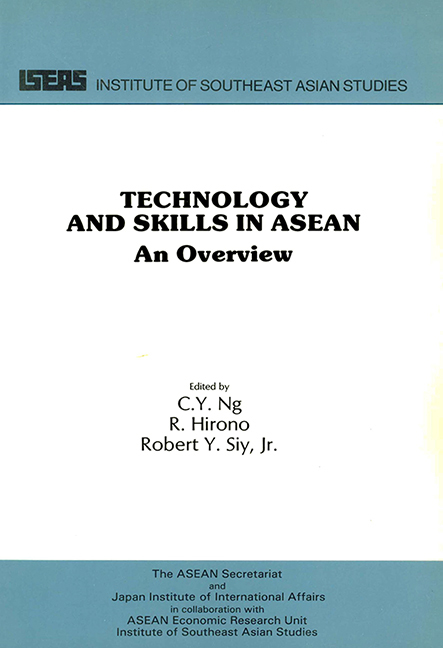Japanese Experiences in Technology Transfer
from PART TWO - SECTION 2: JAPANESE EXPERIENCES IN TECHNOLOGY TRANSFER
Published online by Cambridge University Press: 09 November 2017
Summary
Introduction
While technological innovation has been at the foundation of industrial development and economic growth in any society, it has only been in Japan and other late starters of industrialization that the government has recognized the importance of national technology policies to accelerate the pace of technological innovations in the country for non-defence purposes. In Japan, as in other countries, scientists and engineers have for generations worked on the principles that govern the physiological and biological worlds, contributing to the development of new technologies as well as to the improvement of existing technologies.
Private-sector entrepreneurs and industrialists have organized research and development laboratories where scientists and engineers have experimented with new or improved technologies with a view to developing new products, new production processes, and new materials. In Japan and other late starters of industrialization, however, the governments have come to assist the private sector to introduce innovations in strategic sectors in order to improve their productivity, diversify their production and thus strengthen their competitiveness in the international markets.
Entrepreneurs and industrialists have for years been aware that technological innovation would not be forthcoming unless there was an economic climate conducive to it. High rates of economic growth would tend to accelerate technological innovation, while low or negative rates of growth would not. Government economic policies contributing to higher rates of economic growth have thus been welcomed by Japanese entrepreneurs and industrialists interested in technological innovations. They have also exhibited their enthusiasm over the government's incentives for promoting technological innovation in the private sector.
In view of a higher degree of risk involved and a larger amount of investment outlays required for innovative activity in strategic sectors, the need for such incentives has increased enormously in recent years and there has been a greater appreciation in the private sector for the government's initiatives of undertaking innovation, particularly in collaboration with the private sector.
- Type
- Chapter
- Information
- Technology and Skills in ASEANAn Overview, pp. 135 - 150Publisher: ISEAS–Yusof Ishak InstitutePrint publication year: 1988

